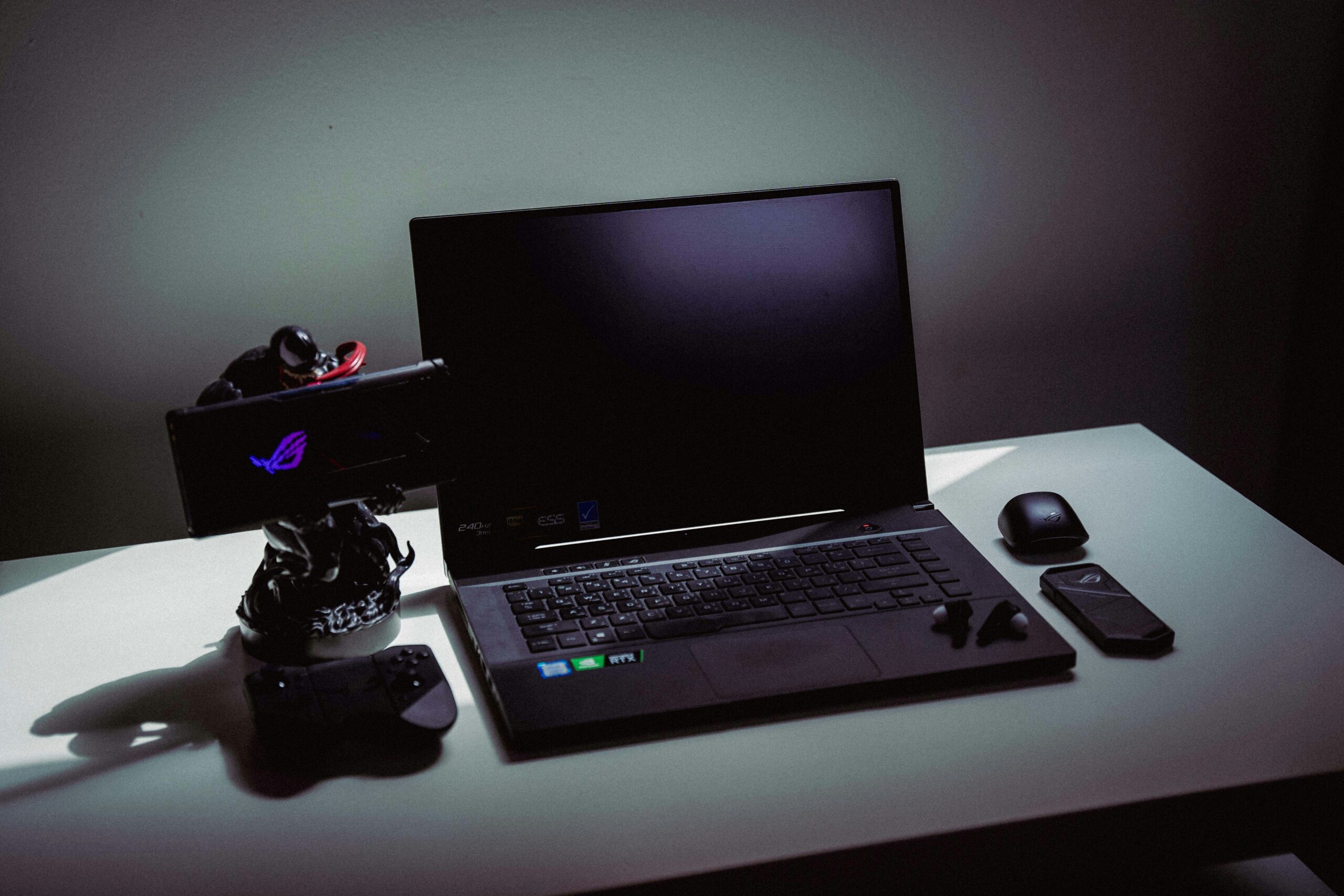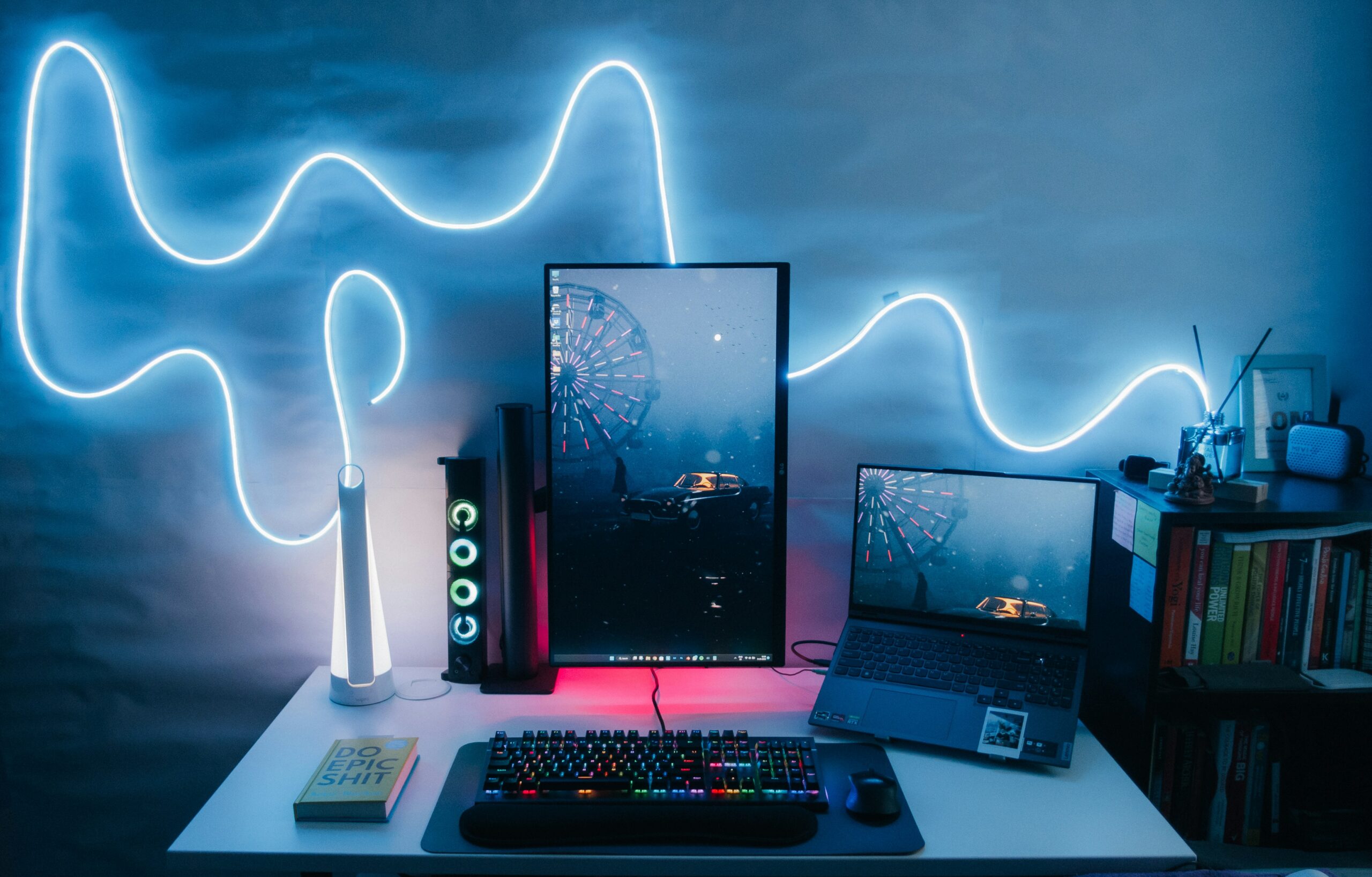Gaming PC vs Regular PC: Key Differences, Performance, Costs & Which One to Choose
When it comes to choosing between a gaming PC and a regular PC, the decision can feel overwhelming. Both serve different purposes, and understanding what sets them apart is key to making the right choice. Whether you’re a casual user or a dedicated gamer, the differences in performance, design, and cost can make a big impact on your experience.
I’ve often found that people underestimate how much power and customization a gaming PC offers compared to a standard setup. While a regular PC handles everyday tasks like browsing and office work with ease, a gaming PC is built to tackle resource-heavy games and demanding applications. It’s not just about gaming; it’s about performance, speed, and future-proofing.
If you’re unsure which one suits your needs, don’t worry. By breaking down their features, you’ll see how each fits into different lifestyles and why the right choice depends on what you value most.
Gaming PC Vs Regular PC: Key Differences
Understanding the differences between gaming PCs and regular PCs helps identify the right option based on usage needs. I’ll break down their distinctions under performance, graphics, and hardware.
Performance Capabilities
Gaming PCs deliver faster processing speeds and support resource-heavy applications without slowdowns. High-end CPUs like AMD Ryzen 9 or Intel Core i9 paired with adequate RAM (16GB or more) handle multitasking and gaming effortlessly. Regular PCs work well for tasks like browsing, streaming, or word processing, using budget-friendly CPUs such as Intel Core i3 or AMD Athlon with 4GB-8GB RAM.
Graphics and Visuals
Gaming PCs feature dedicated GPUs like NVIDIA RTX 40 Series or AMD Radeon RX 7000, ensuring detailed graphics and high frame rates in games or 3D modeling. Regular PCs rely on integrated graphics (e.g., Intel UHD or AMD Vega), which suffice for basic visual tasks like video playback but lack the performance needed for advanced rendering.
Hardware Components
Gaming PCs boast better cooling systems, RGB lighting, and faster SSDs or NVMe drives for storage. Components like modular power supplies and overclocking-enabled motherboards improve performance. Regular PCs prioritize affordability, often using simpler cooling solutions, traditional hard drives, and standard power supplies, making upgrades less flexible.

Cost Comparison
Gaming PCs and regular PCs differ significantly in overall cost. The investment varies based on initial purchase price, ongoing maintenance, and potential upgrades.
Initial Investment
Gaming PCs demand higher upfront costs due to their advanced hardware. A mid-range gaming setup typically ranges from $800 to $1,500, with high-end models exceeding $2,000. This price accounts for dedicated GPUs, powerful CPUs, enhanced cooling systems, and other performance-focused components.
In contrast, regular PCs are more affordable. Basic models suitable for web browsing, word processing, and minimal multitasking usually cost between $300 and $700. They use budget-oriented hardware, which reduces production costs without sacrificing necessary functionality for everyday tasks.
Maintenance and Upgrades
Maintenance expenses for gaming PCs can be higher. Advanced components, such as GPUs and cooling systems, may require periodic cleaning or repairs to sustain performance. Additionally, gamers often upgrade parts like GPUs, RAM, or storage to keep up with the latest software demands, with these upgrades costing between $200 and $1,000 depending on the component.
Regular PCs involve more consistent maintenance costs, usually limited to software updates or occasional hardware repairs. Upgrades are less frequent, as integrated hardware meets most users’ needs for years. Even when updated, these components are generally inexpensive, costing under $150 for items like additional storage or RAM.
Everyday Use Cases
Gaming PCs and regular PCs differ significantly in how they handle daily tasks. Each is better suited for specific use cases, depending on performance requirements and hardware capabilities.
Gaming and High-Performance Tasks
Gaming PCs excel at handling graphically intensive games and demanding software. Their dedicated GPUs and high-performance CPUs enable smooth frame rates and complex 3D rendering. For example, tasks like video editing, 4K streaming, and running simulation software benefit from the processing power and advanced cooling systems of gaming PCs. I find that the ability to multitask efficiently, such as playing games while streaming, is a key advantage of using a gaming PC.
General Productivity Needs
Regular PCs are ideal for everyday tasks like browsing, word processing, and video conferencing. Their integrated graphics and average CPUs are more cost-effective for activities that don’t demand high computing power. I use a regular PC for managing spreadsheets, checking emails, and attending virtual meetings due to its reliability and affordability. While less powerful than gaming PCs, they meet the performance needs of most office-based and educational workflows.

Longevity And Upgradeability
Gaming PCs and regular PCs differ significantly in their longevity and upgrade potential. These factors play a crucial role in maintaining performance and meeting evolving user needs over time.
Future-Proofing
Gaming PCs are built to handle technological advancements. High-end CPUs, GPUs, and ample RAM give them the power to run future software and games with minimal lag for years. For example, a gaming PC with a 13th Gen Intel Core processor and an RTX 4070 can easily support next-gen games and updates. Regular PCs, designed for basic tasks, often struggle to adapt as software requirements increase. Their processors and integrated graphics may limit their ability to run newer applications or operating systems efficiently.
Customization Options
Gaming PCs offer extensive customization that extends their usability. Components like graphics cards, RAM, and storage drives are replaceable, allowing users to upgrade performance without replacing the entire system. For example, swapping out a GTX 1660 for an RTX 3060 can improve gaming performance significantly. Regular PCs, on the other hand, often feature limited upgradability. Many come with soldered parts or proprietary designs that restrict hardware modifications, making it harder to extend their life span or meet changing performance needs.
Conclusion
Choosing between a gaming PC and a regular PC comes down to your specific needs, budget, and long-term goals. If you’re after high performance, future-proofing, and the ability to handle demanding tasks, a gaming PC is worth the investment. However, if your focus is on affordability and basic everyday use, a regular PC will get the job done efficiently.
Understanding what you prioritize—whether it’s power, cost, or versatility—will guide you toward the right decision. Both options have their strengths, and the best choice is the one that aligns with how you plan to use your PC.
Frequently Asked Questions
What is the main difference between a gaming PC and a regular PC?
A gaming PC is built for high performance, offering advanced hardware like powerful CPUs and dedicated GPUs to handle resource-intensive tasks, while a regular PC is designed for everyday use, focusing on affordability and basic functions like browsing and document editing.
Are gaming PCs worth the higher cost?
Yes, gaming PCs are worth the investment if you need powerful hardware for gaming, video editing, or multitasking. However, for basic tasks like office work or streaming, a regular PC is a more cost-effective choice.
Can I use a gaming PC for everyday tasks?
Absolutely! Gaming PCs can handle everyday tasks like browsing and streaming with ease due to their powerful components. However, they may consume more power and cost more than what’s necessary for basic activities.
How much does a gaming PC typically cost?
Gaming PCs generally range from $800 to over $2,000, depending on the specifications. Higher-end models may cost even more due to their advanced hardware and customization options.
Are regular PCs upgradeable like gaming PCs?
Regular PCs are less upgradeable than gaming PCs. Many regular PCs have soldered or proprietary components, while gaming PCs are designed for easy upgrades, allowing users to replace or add parts like RAM, GPUs, or storage.
Do gaming PCs last longer than regular PCs?
Gaming PCs often have a longer lifespan due to higher-quality components and upgradeability, making them better at adapting to future software demands. Regular PCs may struggle with outdated hardware over time.
What tasks are best suited for a gaming PC?
Gaming PCs are ideal for graphically demanding games, 4K streaming, video editing, and multitasking, such as running multiple applications simultaneously. They provide smooth performance even for intensive workloads.
Is a regular PC suitable for gaming?
A regular PC can handle light gaming or older titles but lacks the dedicated GPU and advanced hardware needed for modern, high-performance gaming. For serious gaming, a gaming PC is a better choice.
Do gaming PCs require more maintenance than regular PCs?
Yes, gaming PCs typically require more maintenance to ensure optimal performance, such as cleaning cooling systems and upgrading components. Regular PCs have lower maintenance needs due to simpler hardware.
Which type of PC should I choose?
Choose a gaming PC if you need high performance for gaming, creative tasks, or multitasking. Opt for a regular PC if you prioritize affordability and only need it for basic tasks like browsing, word processing, or video calls.
